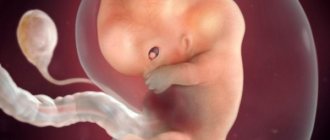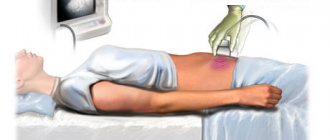Sudden infant death syndrome, or SIDS, is one of the least studied, so it is very difficult to guess who may be insured against it and who may not. Often parents describe their tragedy in the same way: the child went to bed and did not wake up.
Journalist Yulia Dudkina talks about whether it is possible to predict ADHD, how to recover from a tragedy, and what you should never say to a couple who have lost a child. She spoke with both experts and parents who had experienced the death of a newborn.
Alena became pregnant at 16 years old. At that time, she lived in a small town in the Chelyabinsk region and studied at school. “I had a young man whom I started dating when I was fourteen. This was my first love. Everything was very romantic, with flowers and gifts.” Alena says that they didn’t plan a pregnancy, but they didn’t use any contraceptive methods either: then, nine years ago, there were no sex education lessons at their school and they didn’t really know anything about birth control.
“One day I suddenly felt that I was pregnant,” recalls Alena. “Nothing has changed, but I just realized that I feel different.” I went for an ultrasound, and it turned out that I was really going to be a mother.” She and the young man decided together that they would leave the child, get married and try, despite their age, to become good parents. “And then, at the 12th week, during a second ultrasound, it turned out that I was having twins. We were, of course, shocked. Raising two is so hard. But we were still happy that we would have a family.”
When the parents of Alena and her future husband found out that they would have grandchildren, a turmoil arose, everyone began to quarrel among themselves, the girl was persuaded to have an abortion. But she firmly decided that she would give birth. There was a lot of gossip about her at school and in the city. When Alena came to graduation in ninth grade with a rounded belly, many whispered behind her back. “But I didn’t care. My future husband supported me in everything and did not give me offense, he always intervened if someone started saying nasty things.” Over time, the grandparents calmed down, made peace with each other and began to choose diapers and clothes for their grandchildren together.
The twins were born at 38 weeks of pregnancy, slightly premature. But the doctors explained to Alena that this most often happens with twins. “They were two boys - identical twins. It was completely impossible to distinguish them from each other, and in the maternity hospital I was guided by the numbers on the tags and cribs.” The sons were born 20 minutes apart, both healthy and of normal weight.
After being discharged from the maternity hospital, Alena, her husband and children began to live in their own apartment, donated by their parents.
“I was immediately a responsible mother. At the age of 16, many people simply leave their children in the care of their parents, while they themselves go out and go to parties. But I liked taking care of babies. We completed all examinations and tests on time. The boys ate well and began to crawl.”
On December 14, when her sons were already five months old, Alena, as usual, put them to bed and got up at night to feed them. “And then I suddenly woke up at half past five in the morning and remembered that I only got up to see one of my sons, and the second was silent and did not wake up.” Alena became worried. She went to the crib and saw that the second son was already “almost blue” and his eyes were “glassy and not moving.” Alena immediately realized that the child was dead.
Didn't wake up this morning
Sudden infant death syndrome is a diagnosis usually made when an infant dies and an autopsy cannot determine the cause of death.
“These are cases when the pathological examination reveals no infections, no obvious signs of suffocation caused by external factors, no evidence that the child was sick with something,” says neonatologist Elena Yarukova. “For parents, this usually comes as a complete surprise; often they cannot even imagine that something like this could happen.” However, according to the specialist, there are some risk factors: premature birth, low birth weight, multiple pregnancies, previous multiple births, miscarriages or abortions in the mother, pregnancy pathologies or difficulties at birth, infections after birth. There are also external factors, such as second-hand smoke, too-tight swaddling, dangerous sleeping positions, and even stuffiness.
But, as Yarukova explains, these factors are not always decisive. Even if they are all excluded, no one is immune from SIDS. Moreover, as a rule, mothers who had difficulties during pregnancy were warned about such a danger, but those for whom everything went smoothly may not even be aware.
In addition, sometimes risk factors are invisible. “It is believed that one of the main causes of SIDS is the immaturity of the nervous system and cardiovascular system,” explains Yarukova. “The child’s body is still developing, and a failure in the higher nervous system can occur at any stage, especially if this system is underdeveloped for some reason.” Because of such a malfunction, breathing may stop, and then the heart. Most often, parents whose child died due to SIDS tell similar stories: the baby fell asleep and did not wake up in the morning.
Apnea (stopping breathing) can occur in both children and adults, and it is not always dangerous. But normally they should not occur too often and last longer than 20 seconds. Therefore, if a child suddenly stops breathing for a longer period of time, this may signal a problem.
Yarukova explains: There are basic measures that can be taken to reduce the risk of SIDS. The child should not be put to sleep on his stomach, but rather on his back or side. “I usually recommend laying with your head on your side. Then, if the baby burps, the food can come out and there is less risk of choking or suffocation.”
There is no need to clutter the crib with soft toys and pillows: this contributes to the accumulation of dust. It is better to make sure that the child does not overheat, and not to cover his face - according to Yarukova, many mothers do this in winter, when they are going for a walk, because they are afraid that the baby will be cold. The optimal temperature in the room is 20–24 degrees (depending on age) and definitely no more than twenty-five. It is best not to leave the child alone, or watch him using a baby monitor: the device allows you to hear the child breathe, even from another room.
Naturally, it is impossible to monitor the baby 24 hours a day and constantly listen to his breathing, especially since the young mother herself needs to rest and get enough sleep. “Now there are many special devices - breathing monitors. They are placed under the mattress or attached to a diaper. If a child holds their breath for more than 20 seconds, they start beeping in such a way that it is impossible not to hear it.” Any parents can purchase such a sensor, even if their baby is not at risk.
“There are mothers who cannot sleep peacefully because they are so worried about their child. They fall asleep, in their sleep it seems to them that the child has stopped breathing, and they wake up in horror. There is nothing good about this either. It is very important to take care of yourself and remain calm. This is necessary for both the mother and the child. So it’s better to have a sensor.”
Yarukova says that in her department, mothers are always warned about the risks and told about SIDS, but this department receives women who face difficulties even during pregnancy. But in ordinary maternity hospitals they may not warn. As a result, it turns out that those who had a birth without serious complications may be unprepared for such a situation.
When does the risk of SIDS decrease?
A natural question for all parents: when can you stop worrying about sudden infant death syndrome? Most cases of SIDS occur in the first few months of a baby's life, with babies between two and four months of age most vulnerable. The risk of sudden infant death syndrome decreases significantly once a baby reaches six months and begins to roll over, which means he has better control of his neck and head.
Tell me how it was
Alena says that after losing one of her sons, she withdrew into herself for a long time. “Even when I read about this diagnosis on the Internet, I still didn’t understand how this could happen. The events couldn’t fit into my head, I didn’t even want to go to the funeral. My parents insisted." She began to fear for her second child. The woman says that at night it was difficult for her to fall asleep, she constantly listened to whether he was breathing. But at the same time, caring for her second son helped Alena. She says she couldn't afford to "give up and despair."
About a year later, problems began in my relationship with my husband. “When everything first happened, we supported each other as best we could. But then it turned out that it was difficult for us to be together after what we had experienced. We started arguing about everything and decided to leave.” Alena moved in with her parents. Sometimes she and her husband did not communicate, sometimes they tried to start a relationship again. “And then he committed suicide. He called me at work and wanted to raise a wonderful son. He said he was leaving. I didn't believe it at first. I hung up, dialed his parents, and asked him to go check. His mother called back and said he was dead.”
I already had a son
Christina (not her real name) gave birth to her first child seven years ago. The pregnancy was planned, the woman immediately registered with the antenatal clinic and took all tests on time. “At about the 12th week, difficulties began. There was a placental abruption, I went to be preserved in one Moscow maternity hospital, then in another.” The birth was also not easy: due to Christina’s health, they decided to have a caesarean section. “They cut me open, and the doctor at some point said: “I thought he was lying differently.” He called the intern and said: “We’ll hold out.” According to her, for the first few seconds the child did not breathe or cry, and he was “barely pumped out.” But the doctors assured Christina that everything was fine with the baby. They showed her the child, she saw that he was breathing and blinking, and she felt calmer.
“But we continued to have many difficulties. When he was discharged from the maternity hospital, his weight was less than normal, then he began to have difficulty swallowing breast milk, the doctors told him to switch to formula. But he regurgitated it, and I had to constantly try other mixtures. This went on for four months, I was terribly exhausted, I was constantly on my nerves.” At this time, according to Christina, she and her husband “communicated poorly,” and there were many conflicts due to stress. As a result, the husband moved and began to live separately.
About a year after the birth of her son, it began to seem to Christina that the situation was getting better. The child gained weight and became stronger, began to learn to walk and talk, and his nutrition improved. Sometimes Christina noticed that her son’s lips and nails were changing in color: they seemed to turn blue. But the doctors said that this was normal, because small children have problems with blood circulation. She was assured that the child was healthy and she had no need to worry.
“I remember one day it was such a good day. My husband and I have made peace. It was summer, we all went for a walk together. The son ate well and was cheerful. I thought: now everything will be fine.” But the next morning, the son suddenly woke up at four in the morning, as Christina says, “squealing.” “He said he had pooped himself, I took him to the bathroom, but it turned out that the diaper was clean.” After this, the child slept until seven in the morning and woke up already cheerful and cheerful. According to Christina, he sat down to play with toys and after a while suddenly lost consciousness.
Safe sleep: preventing sudden infant death syndrome
It is absolutely essential to know how you can prevent SIDS. Here are some ways to keep your child safe:
- Place your baby to sleep on his back.
Do this every time until the child is one year old, and tell everyone who is looking after him (regardless of whether it is a nap or a night nap). Some babies roll over on their side or stomach when they sleep after being put to sleep on their back. According to experts, this does not pose a danger if the child can already roll back and forth on his own.
- Remove all unnecessary items from the crib.
Make sure the mattress is firm and fits perfectly without leaving any gaps on the sides. Avoid extra blankets, pillows, blankets or any shock absorbers. Just a tightly pulled sheet, and no folds. Never leave toys in the crib, even soft teddy bears. Any extra items in the crib can prevent your baby from breathing normally.
- Move your baby to a hard surface.
Sometimes a baby may fall asleep in a car seat, stroller, or sling. In this case, you need to move him to a hard surface to sleep as soon as possible. Never leave your baby to sleep on a waterbed or pillow.
- Make sure your child does not overheat.
Overheating increases the risk of sudden infant death syndrome. The baby's head should not be covered with anything when you put him to sleep. The temperature in the room should be comfortable and it should not be too hot for you. Dress your child at most one layer warmer than you are wearing yourself, and do not cover him with a blanket. Instead, you can use a sleeping bag without a hood or sleepsuits with a closed toe. If your baby's head or chest is hot and sweaty to the touch, he is too hot.
- Install a crib in your bedroom.
According to expert recommendations, it is better for your baby to sleep in your room, but in his own crib. If possible, let him sleep with you for up to a year, and it is good if the crib or cradle is at arm's length from your bed.
- Do not put your child to sleep in your bed.
It is not recommended to sleep in the same bed with your baby - this increases the risk of SIDS, because you can accidentally crush the baby in your sleep. In addition, the child may become entangled in your bedding.
- Breastfeed your baby.
If possible, breastfeed your baby for at least the first six months. Research shows that this significantly reduces the risk of sudden infant death syndrome.
- Place your baby on your chest.
This skin-to-skin contact is very beneficial for the baby. You can latch on to your baby while you breastfeed, bottle-feed, or just any time of the day. This is also recommended for dads.
- Do not rely on the breathing monitor.
Experts advise against the use of such monitors and other similar devices that purport to reduce the risk of SIDS because their use has not been shown to be effective in preventing SIDS.
- Use a pacifier.
Sucking on a pacifier during the day or night may reduce the risk of SIDS. It is important that the pacifier is not on a rope or cord - or in any way fixed to clothing. If you are breastfeeding, wait until your baby is three to four weeks old and you have established breastfeeding before offering him a pacifier. If the pacifier falls out of your baby's mouth during sleep, do not try to put it back.
- Give your baby all necessary vaccinations.
Several studies show that vaccinations reduce the risk of sudden death syndrome.
- Don't smoke near your child.
And also do not smoke in the car or at home. Try to keep your child away from smoking areas.
- Make sure the crib and other baby equipment are in good working order.
The cradle, crib, stroller and playpen must comply with safety standards. They should not be broken, and if you borrow them from someone or give them to you after use, check them for safety and thoroughly sterilize them.
- Place the baby on his stomach.
Place your baby on his tummy when he is awake - this strengthens his neck and back. But always watch your baby so that he does not fall asleep in this position.
Remember the three main rules for safe baby sleep:
- the baby should sleep alone;
- the baby should sleep on his back;
- The baby should sleep in his own crib.











